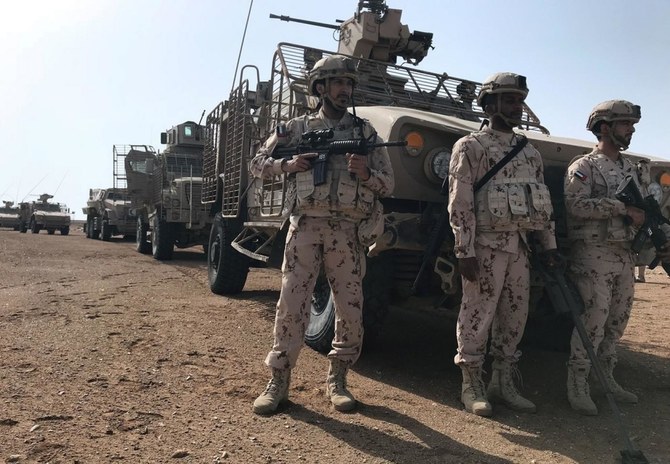
- ARAB NEWS
- 02 Jul 2025

With the political and security changes currently taking place in the world and the expected future alliances, it has become necessary for the countries of the Middle East and North Africa to make essential security and military decisions to maintain the region’s stability. The implications of the Russian invasion of Ukraine, the unified international economic sanctions against Moscow and the possibility of reaching a new nuclear agreement with Iran will definitely increase the extent and seriousness of the upcoming security challenges in the region.
Reviving the Joint Comprehensive Plan of Action with the Iranian regime will open Tehran’s money spigot, enriching its proxy militias in Iraq, Lebanon, Syria and Yemen and maximizing their influence and atrocities against what the Iranian regime considers to be hostile governments and their innocent citizens.
The US and European conflict with Russia has highlighted the importance of NATO in protecting its members against any possible military threats and should raise the idea of a similar Arab alliance to prevent any aggressive actions against its countries.
Would that be a solution and, if yes, would it be possible to form such a powerful alliance?
The idea of a Middle East security alliance is not new. It has been kicking around since the 1950s.
The Baghdad Pact (which had only one Arab member — Iraq — alongside Turkey, Iran, Pakistan and the UK) lasted for about two decades from the mid-1950s.
According to David Des Roches of the Near East and South Asian Center at the National Defense University in Washington, the idea of an Arab NATO or even a Gulf NATO has three problems that would make forming such an alliance difficult. “Not a true relationship of equals. Egypt’s population has always been so big that it would dominate any alliance. Saudi Arabia plays roughly the same role inside the GCC. When people look at the Gulf and call for a NATO arrangement, it would be like NATO if it were the US, the Netherlands, Portugal and Greece. The sizes of the countries are so different that you can’t have a true alliance of equals,” Des Roches told me.
The second problem would be the role of Israel, since Israeli-Palestinian issues will always complicate such an arrangement.
The third issue from Des Roches’ point of view is the lack of trust between the countries in the region.
However, even with these valid points, an active Arab coalition is badly needed to deter the genuine Iranian threat and future Russian influence and interference in the region. A unified defensive military plan, the deployment of effective missile systems in the countries of this alliance, shared intelligence, and a ready-to-go multinational force would be ideal for securing the whole area and confronting radical terrorism.
Discussing the countries that would likely join this military alliance, Des Roches named those that are closest to the West, such as Morocco, Jordan, Bahrain and the UAE. “Saudi Arabia would possibly move into this camp. Egypt remains a wild card — it is fiercely nationalistic and jealous of its sovereignty but would join if it felt there were significant security — and financial — benefits,” he added. Kuwait, in his opinion, would also be in this camp if Israel were omitted.
Regardless of the region’s differences, the need for a strong, well-equipped and professionally trained military alliance has become obvious.
Dalia Al-Aqidi
Regardless of all these differences, the need for a strong, well-equipped and professionally trained military alliance has become obvious.
What if Iran decided to invade and seize some Iraqi or Syrian territory to use as a springboard for further military attacks on the region? What if Turkey annexed some areas of northern Iraq? What if a peaceful solution is not reached in Yemen? What if an Iraqi government affiliated with the Iranian regime decided to invade Kuwait again? What if Hassan Nasrallah installed a missile system on the Lebanese-Israeli border? And what if Russia extended its hand in North Africa?
The likes of Egypt, Saudi Arabia, the UAE and Morocco should seriously consider establishing an Arab NATO that has strict conditions for all countries that wish to join.
It is time for the moderate Middle Eastern countries to gain power by depending only on themselves and building joint capabilities to deter any threats coming their way.